- 5 min to read
Search in the Jamstack World
As we moved on from monolithic websites to modern web development architectures, among which the Jamstack, the website search functionality has become a topic on its own.
Before the internet started being more complex with various web apps and progressive web apps, most businesses relied on a monolithic approach to website development (think WordPress). Different search engine options had never been discussed with the monolithic approach because there was no need for that discussion: search was automatically integrated into these websites.
Today, in contrast to the built-in search feature, developers have the option to pick and choose the solution that does the job best for their use case. For many, a website search is often the first dynamic part they’ll be adding to their new Jamstack project.
With that in mind, let’s go through the best website search tools offered right now in the Jamstack world.
Join Bejamas newsletter!
Get the exclusive Jamstack web dev case studies (and more) in your mailbox!
Site search solutions available in Jamstack
While the search-as-a-service market might not be as developed as some other markets, that in no way means that the solutions available aren’t up to par. It’s quite the opposite; they are excellent: it just comes down to which one is the right pick for you.
Programmable Search Engine by Google
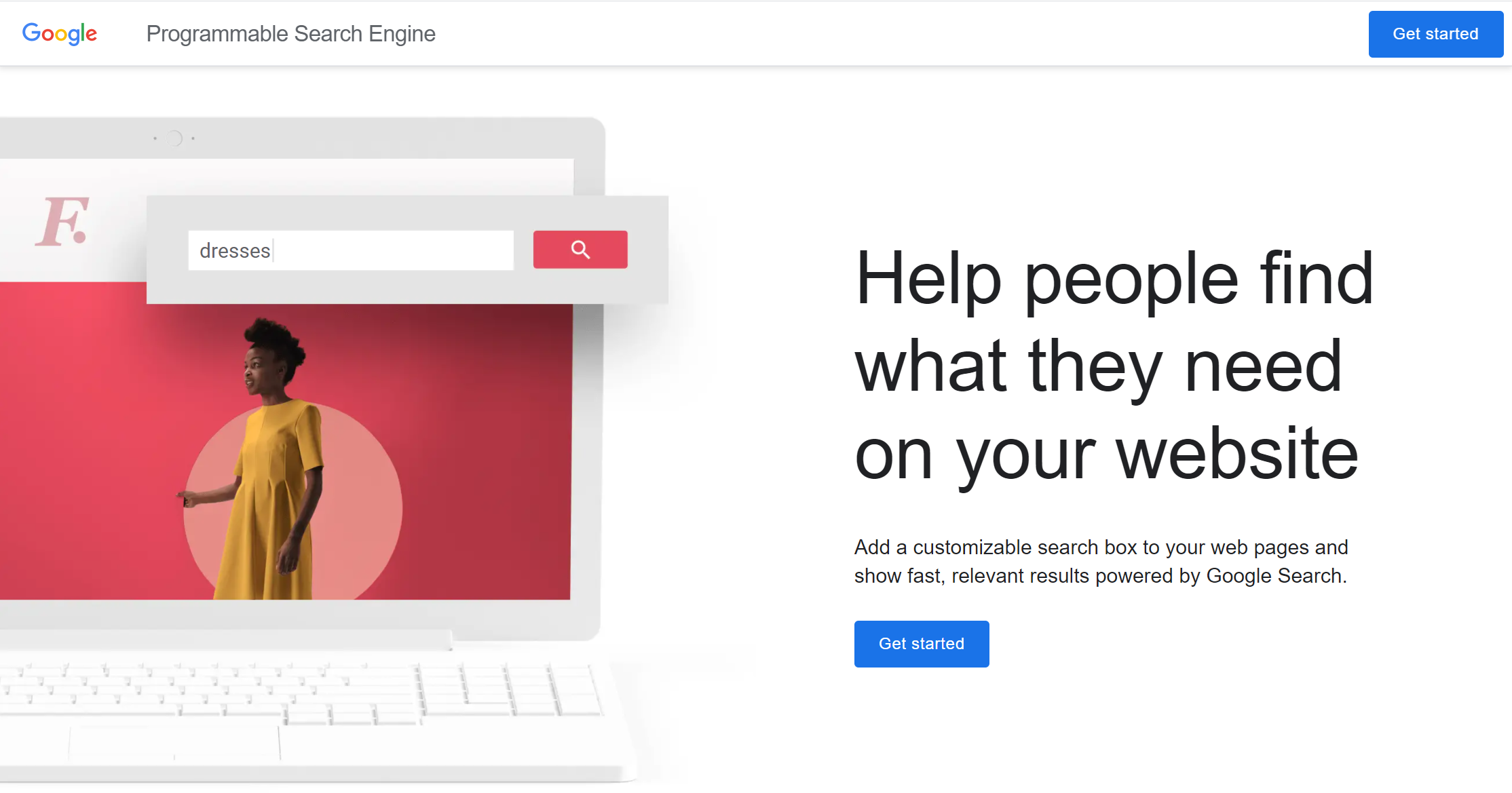
Google’s Programmable Search Engine (previously known as Google Custom Search) is a Google solution for website search functionality. It offers a customizable search box for your website that shows relevant results powered by Google Search.
Features, pros, and cons:
- Easy setup and easy customization of both results output and search box and page design. You can choose if you want users to see only your website results or include other sites.
- The free plan allows a lot of customization, but it also shows ads.
- Supports JSON API for REST-based access, but this is a paid-only option.
Algolia
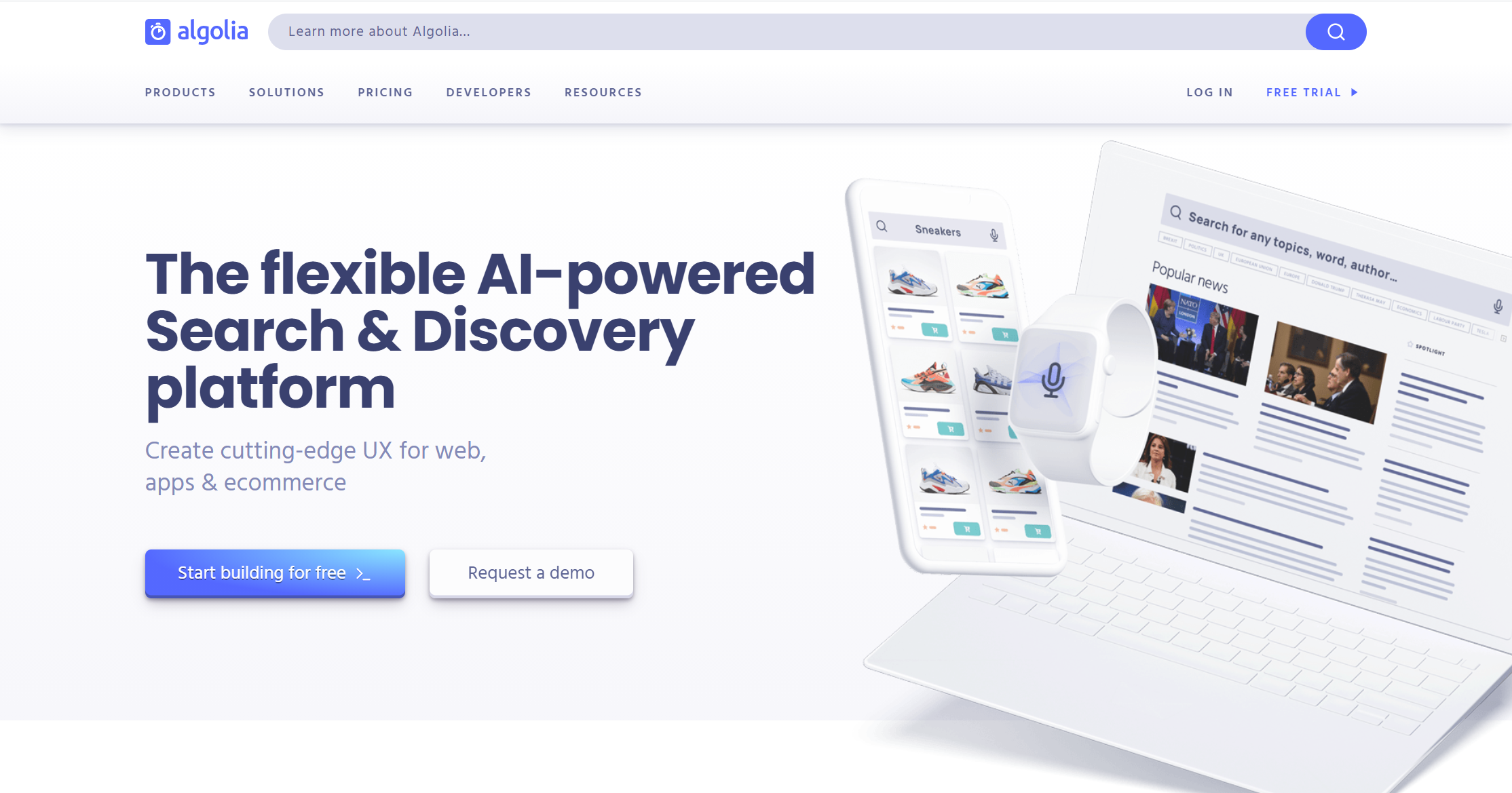
Algolia is one of the most popular search-as-a-service providers in the Jamstack world (and beyond) that helps you deliver what your customers search for every time.
Algolia offers a full suite of APIs to easily integrate tailored and fast search experience. They say their mission is to give developers the building blocks to create a fast, relevant search experience.
Features, pros, and cons:
- Free plan for SMEs with analytics.
- Extensive documentation and guides on top of fantastic customization options.
- Active community and 24/7 support (for paid plans).
- AI-powered search with personalization, rules, and merchandising.
- You can’t test your setup based on the hypothetical user’s geolocation (when you build a search solution for the US audience while you are in Europe, for example).
Our website search uses Algolia, just look at the 🔎 icon. We use gatsby-plugin-Algolia to index our content during the build. On the frontend, we use algoliasearch/lite and react-instantsearch-dom which is Algolia react components that can be easily used with Gatsby.
Elastic
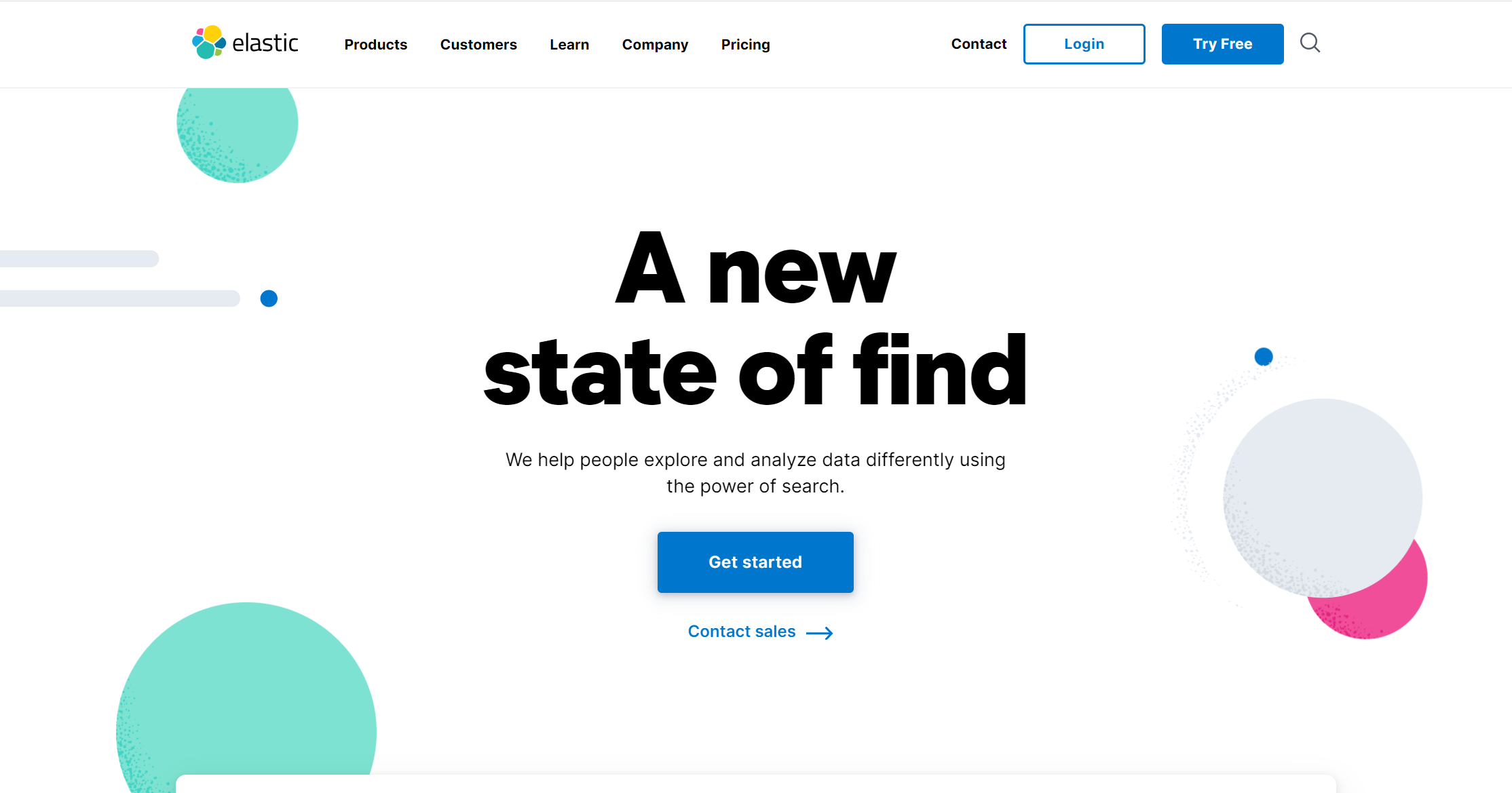
Even if you’re only starting to explore the search service market, chances are you have heard of Elastic, a distributed, free and open search and analytics engine.
It is one of the most popular and widely-used search solutions that thousands of companies worldwide use, both internally and externally. If you’re looking for the widest variety of features, some of which include even observability and security, this might be the right solution for you.
Elastic offers different plans depending on whether you choose managed or self-managed Elastic cloud or stack. Open Source options are available as well.
Features, pros, and cons:
- Wide variety of features + open-source option.
- Comprehensive data analytics and application performance monitoring.
- Large, active community and extensive documentation, guides, and training.
- Elastic search doesn't support multi-language requests and responses.
- Steep learning curve.
- The level of support depends on the plan you have.
CloudSh
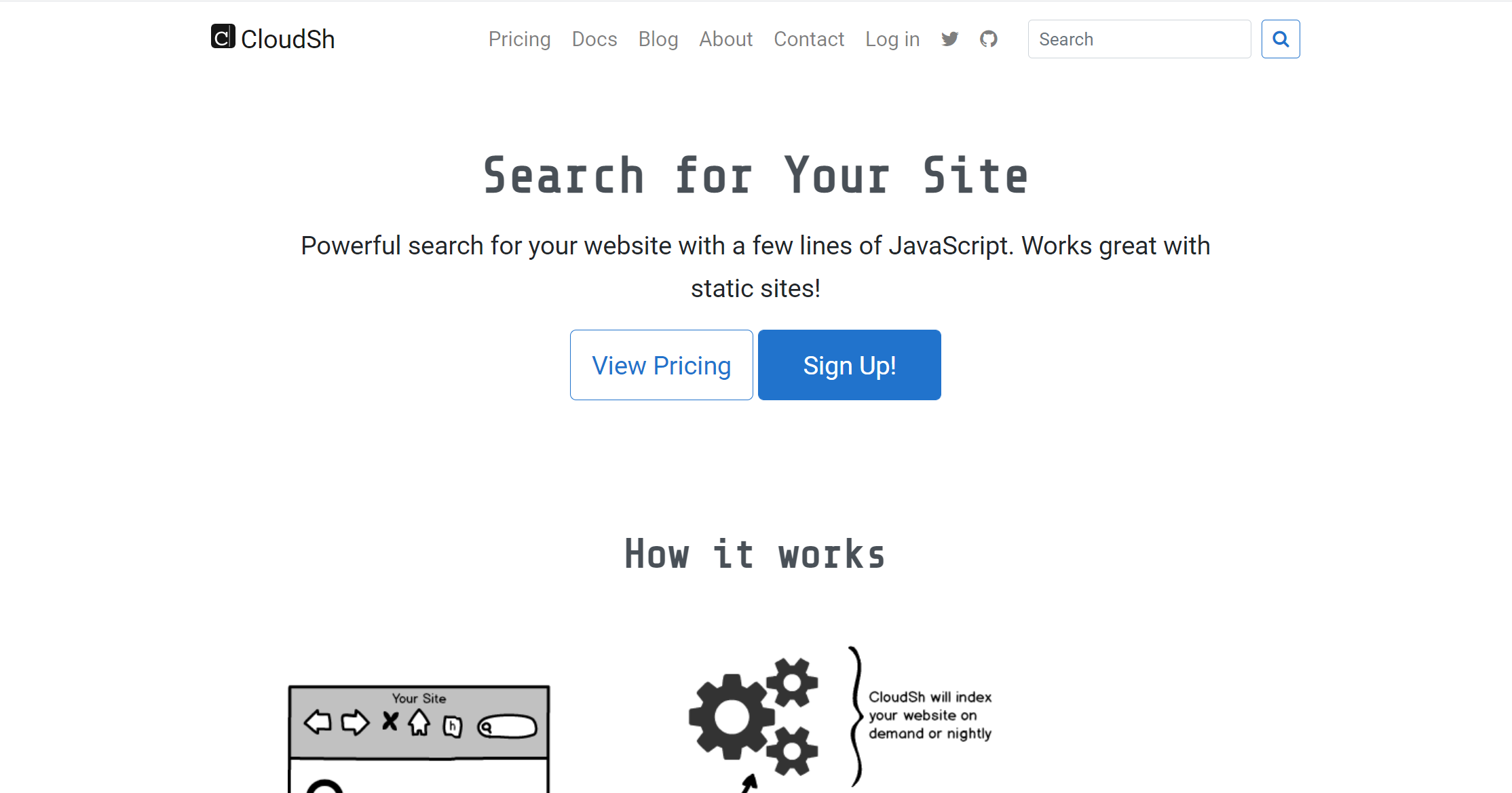
CloudSh is another search-as-a-service provider that offers a powerful search engine for your website with only a few lines of JavaScript.
It’s perfect for anyone looking for a simple solution for their static website. While CloudSh offers a few plans for businesses of different sizes, including a 7-day free trial, CloudSh doesn’t have a free plan in their offer.
Features, pros, and cons:
- CloudSh has been specially built for static websites and indexes their pages with both on-demand and scheduled basis.
- Simple to use and integrate with pre-made integration solutions for different static site generators.
- Analytics and on-demand indexing for all plans.Priority support for all except the Personal (basic) plan.
MeiliSearch
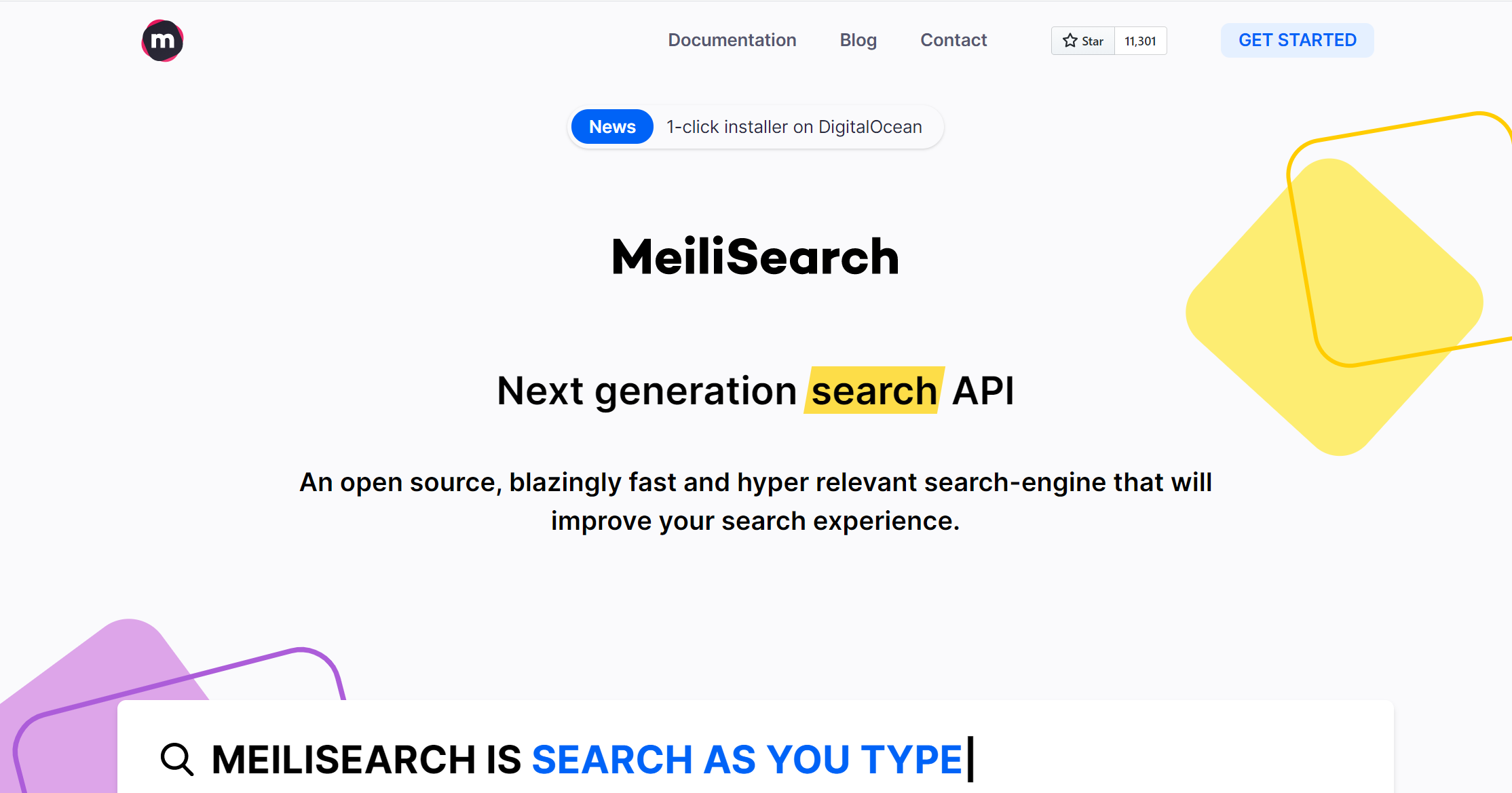
Meili Search is a blazing-fast open-source search API solution written in Rust. It is built with an idea to completely transform your users' search experience and offer them the best possible performance for instant search.
They provide an excellent toolkit for customization, although if you decide not to customize, the solution works with a preset that will be enough for most use cases.
Meili is an excellent solution, but it lacks some features, such as the analytics dashboard. Keep in mind that Meili is a fairly new solution on the market - and very promising at that - so we should start seeing them catch up to the others.
Features, pros, and cons:
- Open-source, free, and available to anyone.
- Written in Rust. Uses RESTful API.
- Easy to integrate with extensive customization possibilities (also presets available).
- Search as-you-type experience, which means that MeiliSearch can return results for almost EVERY keystroke you make.
- It looks like the great things are yet to come. Needs more features.
Apache Solr
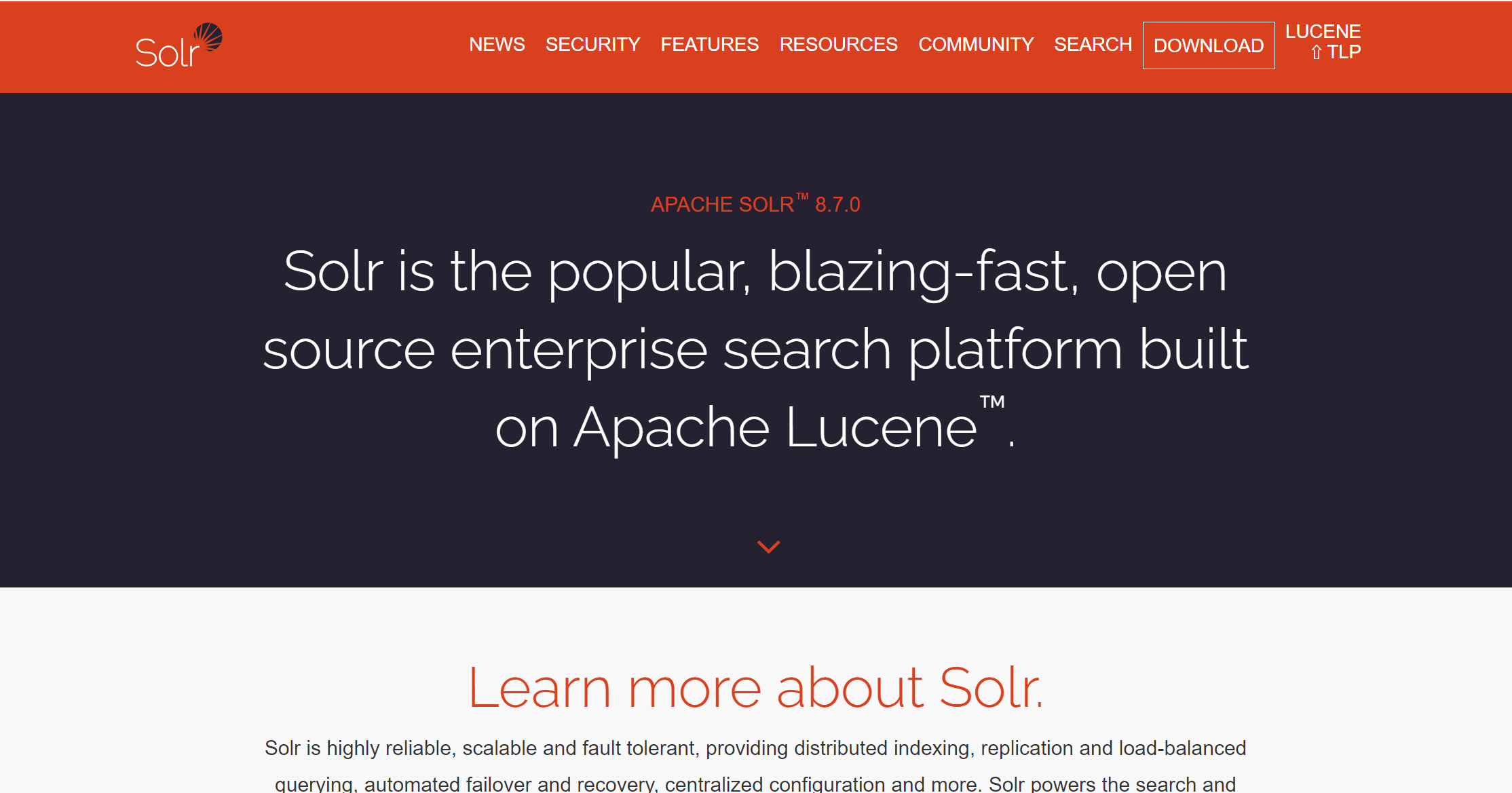
Solr is another top-rated, high-speed search platform from the open-source giant Apache and built on Apache Lucene.
Solr offers a plethora of different features: distributed indexing, replication and load-balanced querying, automated failover and recovery, and centralized configuration.
Even though it is used by many of the world’s largest websites (like AOL and BestBuy), it is a great solution for businesses of all sizes.
Features, pros, and cons:
- Open-source with extensive data management and analytics capabilities.
- REST API for accessing and validating the data/records.
- Large, active community and excellent documentation, guides, and training.
- CPU consumption can be high in some cases.
Js-Search
Js-Search is a straightforward option that enables full client-side searches with the library used. When developers build static websites, they also build a search index of the pages, which is later used for searching via Js-Search.
While this search is fast, an issue is raised because this solution isn’t a good fit for full-text search. Indexing full text this way would significantly impact the whole website’s performance.
Features, pros, and cons:
- Very simple and free.
- Great for small websites.
Typesense
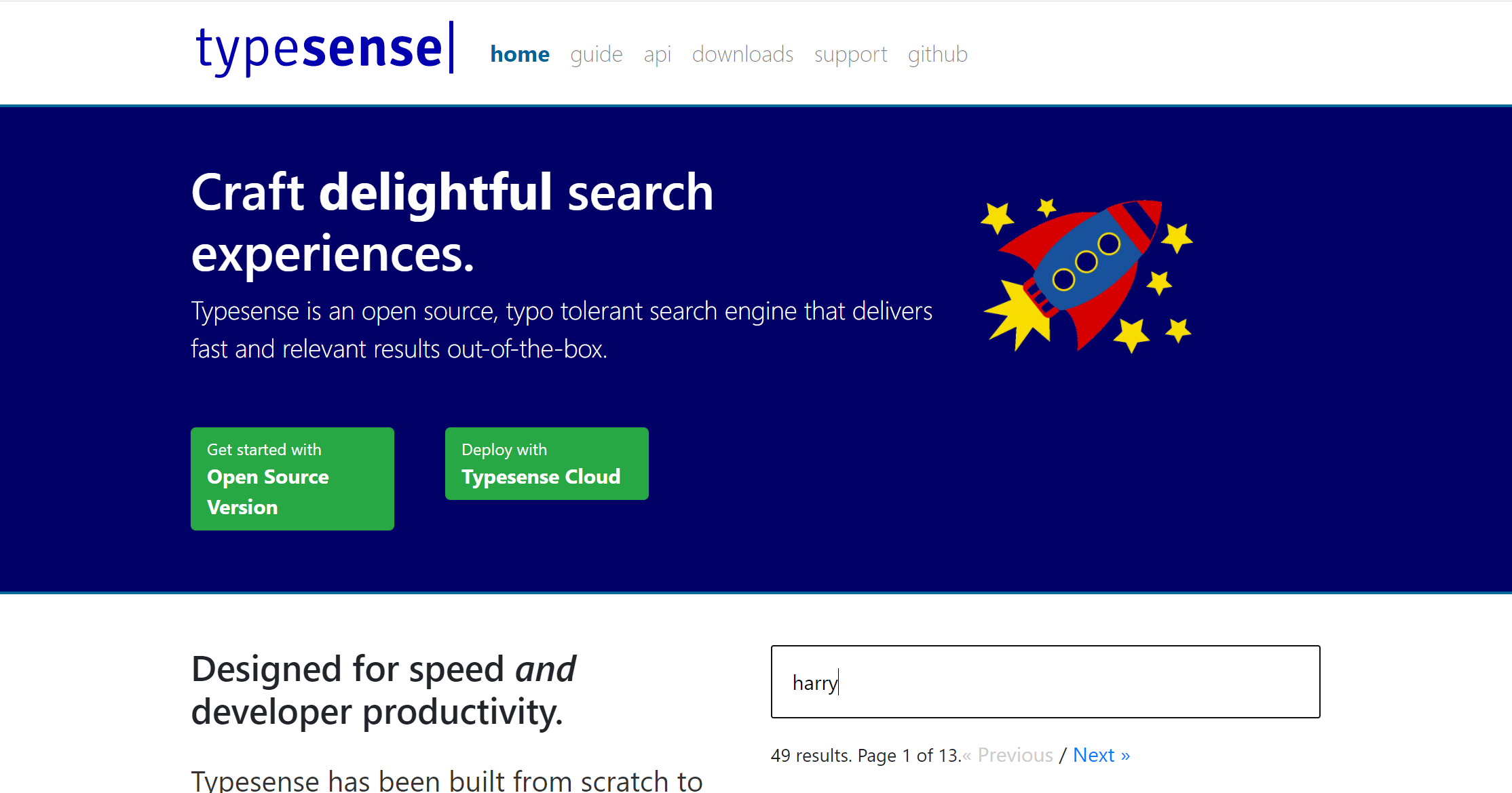
Typesense is an open-source, typo tolerant search engine, which means it handles your errors while typing fast and out-of-the-box. For now, it has API clients for Javascript, PHP, Python, and Ruby, and implementation is pretty straightforward.
Features, pros, and cons:
- While simple at its core, Typesense has an advanced filtering system if you need fine-grained control of the search results.
- Simple to set up and update with a new version.
So, which option is the best?
To decide which option would be right for your business, I suggest you first write down your main requirements. Then, go through the list above, and find the best fit!
If you’re building a simple, static website, try CloduSh, Typesense, or Js-Search. And if you don’t mind sharing ads in search results Google’s Programmable Search Engine can be a decent option as well.
If your business wants a full-fledged search platform with all the bells and whistles, try Algolia.
If you’re looking for a large company or enterprise search platform, then Elastic or Solr might be more up your alley.
Need a custom web dev team to back your ideas and bring them to life? Let’s talk. BOOK A MEETING today and learn more about what we can do for you and your business.